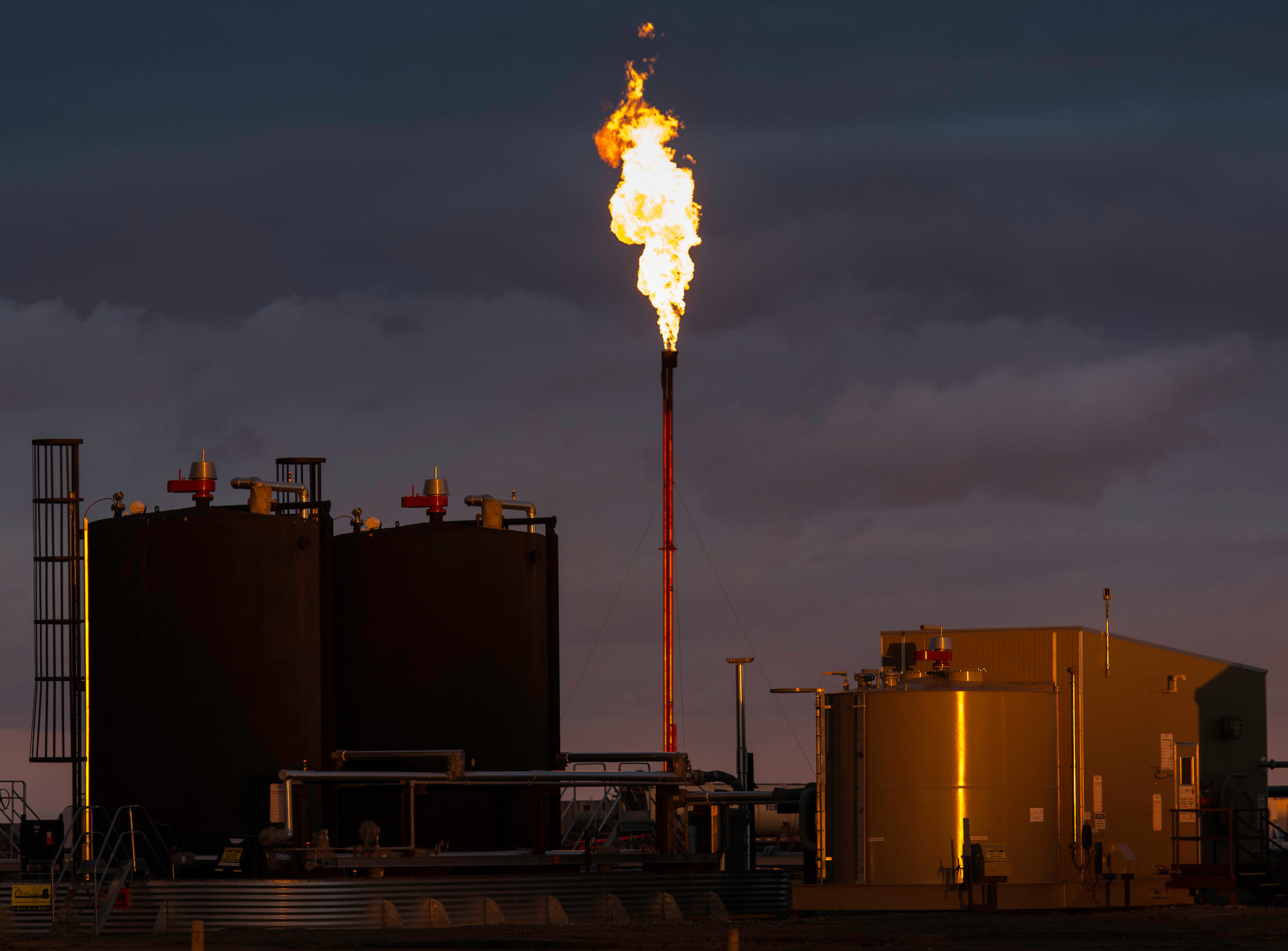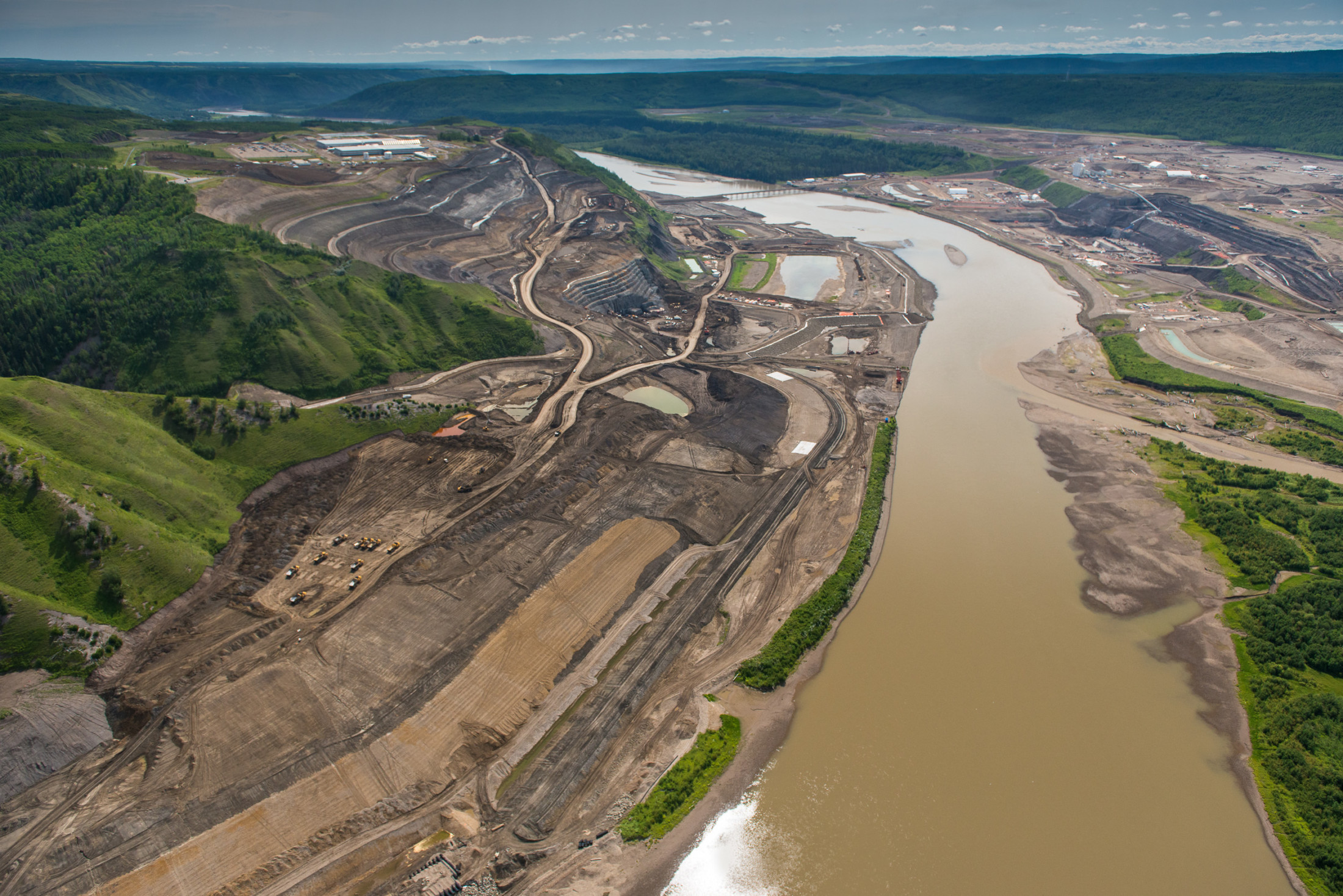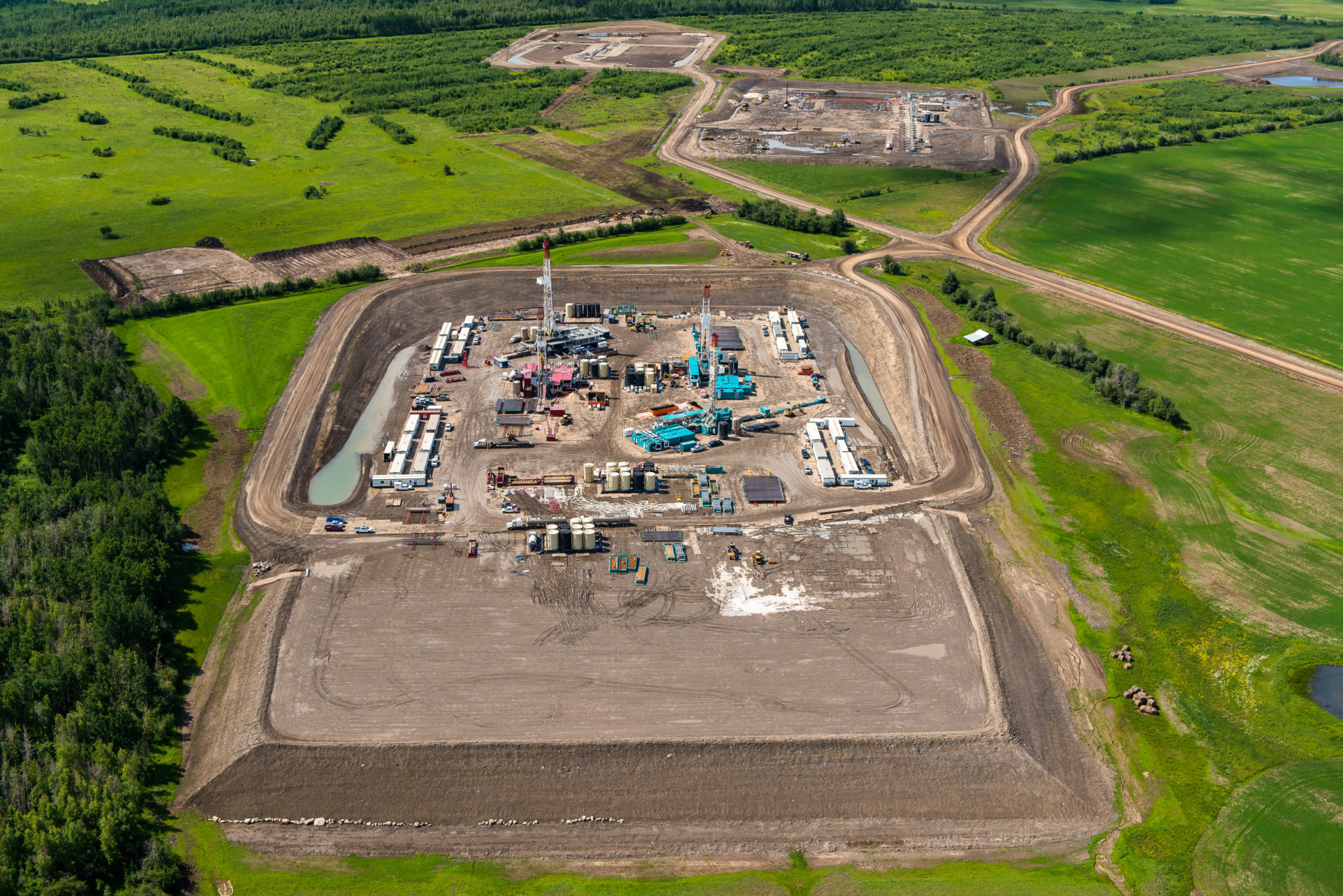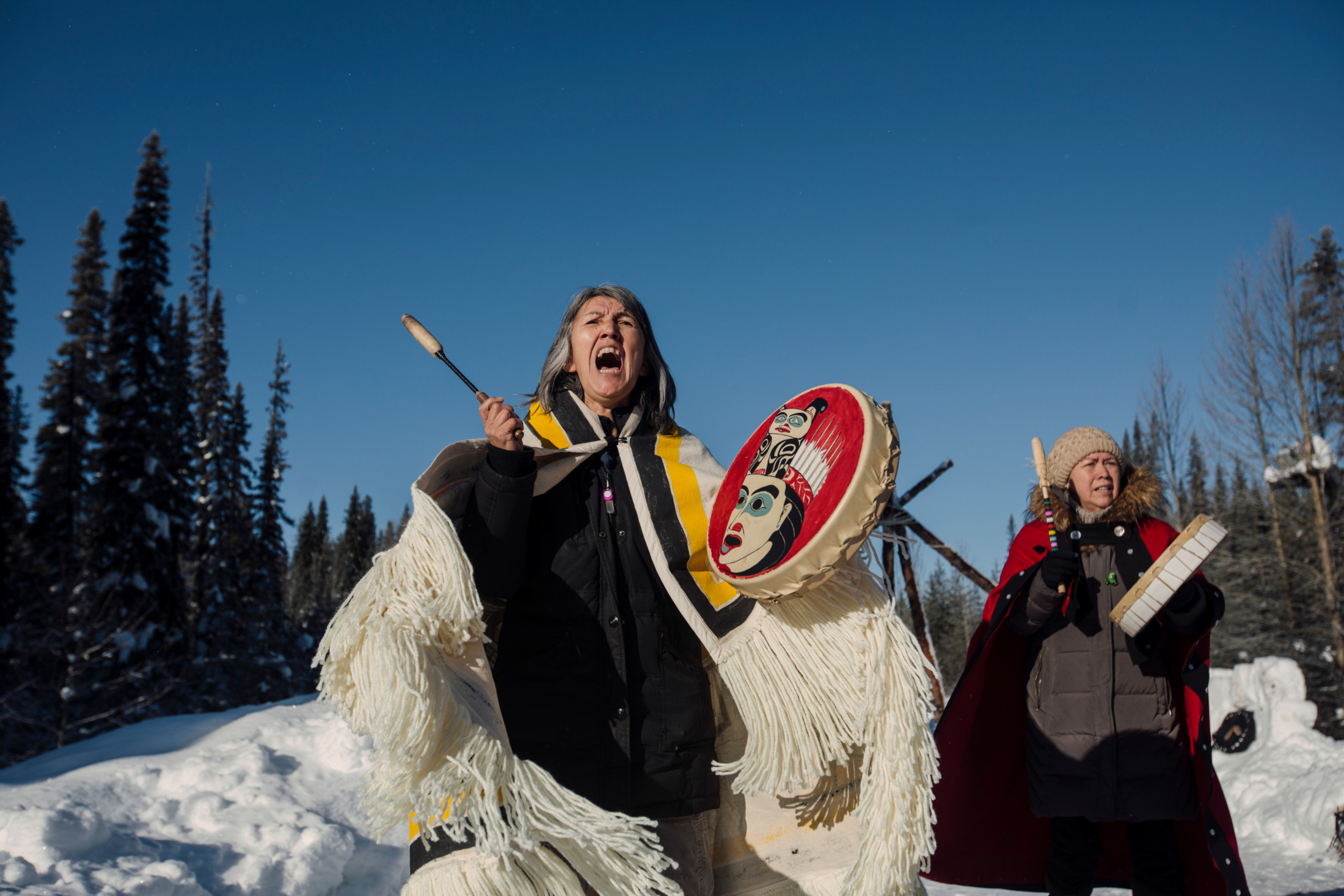
A deadly disease is killing millions of bats. Now Trump funding cuts threaten a promising Canadian treatment
At a crucial point in their research, biologists are scrambling to find new support for...
The government British Columbians elect Oct. 24 will come to power in the middle of multiple emergencies: the COVID-19 pandemic, an economic recession as well as climate and biodiversity crises.
NDP Leader John Horgan, BC Liberal Leader Andrew Wilkinson and Green Leader Sonia Furstenau all say stimulus spending is needed to guide B.C. through the current economic downturn — and some observers see it as an opportunity to make major headway on the transition to a sustainable economy.
The three major parties vying for seats in the B.C. legislature agree climate change is a threat, that greenhouse gas emissions must be reduced and that ultimately our economy’s reliance on oil is coming to end.
“That is something that we can’t take for granted,” said Karen Tam Wu, the regional director of British Columbia at the Pembina Institute, who noted in other jurisdictions, those basics are often up for debate.
“It really is an opportunity to build for a safe, more resilient future,” she said.
The NDP, BC Liberals and Greens have all made some form of pledge to increase the number of charging stations for electric vehicles, to invest in transit and to encourage energy retrofits in homes and other buildings.
When it comes to the scale of these investments and other issues, however, they don’t quite see eye to eye.
The NDP is building on its 2018 CleanBC plan, with a commitment to reach net-zero emissions by 2050.
The Green platform commits to a more ambitious target of net-zero emissions by 2045, in line with California.
Meanwhile, the BC Liberals have said they want to rebuild B.C. as a climate leader, but haven’t committed to specific emissions reductions targets.
As voters weigh their options in the 2020 B.C. election, here’s where the parties stand on environmental issues.
In CleanBC, the NDP’s 2018 climate plan, Horgan’s government committed to reducing greenhouse gas emissions by 40 per cent below 2007 levels by 2030 and 80 per cent below by 2050. But new measures are needed to meet that goal. Modelling in the 2019 Climate Change Accountability Report shows B.C. is expected to fall 5.5 million tonnes short of its 2030 target without additional steps to cut greenhouse gas emissions.
If re-elected, the NDP has committed to enacting legislation requiring B.C. to have net-zero emissions by 2050, meaning that any greenhouse gas emissions would have to be offset by carbon sinks, carbon capture and storage or other technology.
To help B.C. reach that goal, the NDP say they would invest in B.C. entrepreneurs working on carbon capture technology, use incentives to spur energy efficiency building retrofits, make additional investments in the CleanBC industrial emissions strategy to help mines, pulp mills, oil and gas processing plants and other industrial operations reduce their emissions, and work to reduce methane emissions. The NDP has also re-committed to reviewing oil and gas subsidies.
Read more: ‘I don’t think we will ever catch up’: B.C. methane targets out of reach amid growing LNG, fracking
Furstenau’s Greens, meanwhile, are aiming for net-zero emissions five years earlier, by 2045. The party says it will set interim 2025 targets and develop an accountability framework to make sure B.C. meets its legislated goals. The Greens have also committed to setting specific targets for industrial sectors, ending oil and gas subsidies, restoring forests and wetlands that serve as carbon sinks and strengthening energy efficiency requirements in buildings.
“We cannot transition our economy away from fossil fuels at the same time as governments increasing subsidies to fossil fuel companies. It simply doesn’t make any sense,” Furstenau said during an online climate and environment debate hosted by Organizing for Change on Oct. 15.
In response, George Heyman, who served as the NDP’s minister of environment and climate change strategy since 2017, said “we know we have to do more to deal with the climate crisis.”
“We’ve introduced accountability legislation that requires reports by the minister every year on our progress including commentary by an independent climate council and we have committed to put an environmental lens on all the oil and gas royalty credits and take a good, hard, comprehensive look at them,” Heyman said.

Methane is a potent greenhouse gas with a climate warming potential 25 times that of carbon dioxide on a 100-year timescale. Global efforts are underway to curtail methane emissions, and as a part of Canada’s international commitments, B.C. set a goal of reducing provincial methane emissions 45 per cent by 2025, compared to 2014 levels. But trying to meet that target at the same time as pursuing B.C.’s LNG ambitions is something the experts are skeptical
the province can accomplish. Photo: Garth Lenz / The Narwhal
The Greens have also committed to immediately bring back scheduled carbon tax increases, which the NDP put on hold due to the pandemic.
While the BC Liberals pledge to make B.C. a climate policy leader and to develop a comprehensive strategy to reduce emissions, the party’s platform doesn’t include any specific reduction targets.
The BC Liberals say B.C.’s next challenge is addressing emissions from buildings and transportation. The party says it would encourage building retrofits and update the building code to address energy efficiency requirements while respecting regional differences. Wilkinson has also committed to investing in renewable energy and research into new technologies, including carbon capture.
The BC Liberals would work with the federal government to review carbon tax increases in light of the recession.
“In terms of the fossil fuel subsidies, we’ve made no secret that we feel that we need to make sure that we’re invigorating the economy in ways to get people back working and start to drive down the greenhouse gas emissions at the same time,” said Peter Milobar, the BC Liberals candidate for Kamloops-North Thompson and the party’s former environment critic, during the Oct. 15 online environment debate.
“We need to make sure that any subsidies that are there need to be worked on, to be phased out over time to make sure as we start to transition away from a fossil fuel economy — which I think we all agree is going to happen over the next short term — that we are there making sure that we are moving forward in a way that as a government people are supported at the the same time that we’re making that transition happen,” he said.
The BC Liberals, Greens and NDP have all committed to take action on transportation, which accounts for almost 40 per cent of B.C.’s greenhouse gas emissions.
The NDP has promised new incentives for both new and used zero-emission vehicles to make them more accessible to people with lower incomes and increase the number of vehicle charging stations with incentives and legislation. They’re also pledging to cut the provincial sales tax on e-bikes.
The NDP would also work with communities to improve transit connections across southern Vancouver Island, between Surrey and Langley and in other communities. The party also wants to expand Highway 1 through the Fraser Valley.
The Greens have committed to developing climate and sustainability criteria for all future capital projects, including those in the transportation sector. Like the NDP, the Greens say they will invest in southern Vancouver Island transit. The party wants to work with local governments to develop long-term stable funding for transit, including for TransLink, BC Transit and BC Ferries, and speed up the transition to zero-emission vehicles by requiring all new non-commercial vehicles sold in B.C. to be zero-emission by 2035.
The Greens have committed to removing the PST on used electric vehicles to make them more affordable, investing in electrifying transit systems and expanding charging infrastructure.
The BC Liberals have promised to boost the number of electric vehicle charging stations and to continue expanding public transit south of the Fraser River, in the Fraser Valley and in North Vancouver. The party has also pledged longer transit hours in the Interior, the North and on Vancouver Island and to reviewing ferry schedules with an eye toward hourly service on busy routes.
During the televised leaders debate Oct. 13, Horgan said he would wait to make a decision on the future of the controversial Site C dam until he has received the results of a report from Peter Milburn on the geotechnical issues and economics of the project. Milburn, a retired deputy minister of finance with the B.C. government, was appointed in July to review the project.
According to a new report from a U.S. energy economist BC Hydro customers could initially save more than $100 million a year if the project is cancelled.
In late September, Furstenau called for the province to stop construction of the dam until the geotechnical issues are reviewed.
“The future of clean power in B.C. is small scale, renewable energy that provides good jobs and economic opportunities throughout the province,” she said in a press release.
Mike Bernier, the BC Liberal candidate for Peace River South and the party’s co-critic for transportation and infrastructure, said cancelling the project would be irresponsible.
“If the project was cancelled now, you could imagine, if it was three, four billion dollars (in sunk costs) three years ago, would it be double that now? Who knows,” Bernier told Business in Vancouver.

Site C dam construction in 2018 along the banks of the Peace River. A recent report from a U.S. energy economist found BC Hydro customers will save an initial $116 million a year if the B.C. government cancels construction of the Site C dam and the savings will only grow over time. The report comes at a critical time for politicians making promises about the fate of the publicly funded project. Photo: Garth Lenz / The Narwhal
The NDP say they want to make B.C. a global producer of low-carbon products and services. To get there, they’ve committed to investing in high-speed internet across the province, supporting innovative clusters that bring companies, researchers and entrepreneurs together and working with the federal government and BC Hydro to expand electrification infrastructure.
The NDP has committed to creating a mining innovation hub to support training, better regulations, environmental management and low-carbon approaches to mining.
Read more: Fact check: are B.C.’s LNG ambitions compatible with its climate goals?
Alongside continued investment in forest revitalization and wildfire protection, the NDP is promising “more logs for job creators” and plans to direct a portion of the annual allowable cut to companies that create new jobs.
The Greens have promised a $1 billion strategic investment fund to support business innovations that shift B.C. toward a zero-carbon economy as well as a $500 million fund to support sustainable jobs. The party has committed to developing a clean jobs program focused on areas such as tree planting, conservation, environmental remediation and climate adaptation — and to implement a just transition for oil and gas workers. The party says it would support the creation of a biofuel and clean hydrogen strategy to help replace fossil fuels for transportation.
The party has further committed to changes in the forestry industry, including to redistribute tenures from a few major companies to First Nations and communities, and to shift forest management from a focus on timber to managing for all forest values.
The BC Liberals have promised to cut the timeline for mine permitting in half, advance hydro exports to the U.S. and other provinces, create new environmental work experience opportunities in provincial parks, and invest in tree planting.
The party says it will develop legislation to protect the working forest to provide more certainty, work to improve forest management and reduce the cost of production.
The BC Liberals say they will expedite Indigenous-led LNG export projects and accelerate the review and approval process for LNG projects.
While the BC Liberal platform doesn’t provide details about the scale of LNG development, Tam Wu cautions that Pembina’s analysis shows there’s very little room for additional LNG development that would increase carbon emissions if B.C. wants to meet its existing 2050 targets.
Horgan meanwhile, has promised to monitor the LNG Canada project to ensure it falls within climate targets. The NDP platform says the project shows B.C. “can balance our economic environment, social and reconciliation priorities.”
The Greens, which have long opposed LNG, have promised to shift away from fossil fuels and end all fossil fuel subsidies. Instead the party supports developing biofuel and hydrogen strategies to help replace fossil fuels in transportation.

With the approval of LNG Canada, there is expected to be an explosion of hydraulic fracturing operations in northeastern B.C., like this one near Farmington. Photo: Garth Lenz / The Narwhal
The NDP have promised to support innovation in fish hatcheries, to increase processing of wild fish caught in B.C., to work to double funding for the BC Salmon Restoration and Innovation Fund, a joint effort with the federal government and to develop new plans to protect wild salmon.
The Greens meanwhile have committed to transitioning the fish farming industry to land in an effort to protect wild salmon. The party promises to cancel tenures for open-net pen fish farms and to work with Fisheries and Oceans Canada, First Nations and industry to develop a land-based industry.
The Greens have also promised to bring forward a new coastal law to protect coastal ecosystems.
The BC Liberals have promised to appoint a minister for fisheries and coastlines focused on enhancing and protecting fish resources and coastal ecosystems. The party has also promised more robust measures to protect salmon and steelhead.
In its 2020 platform, the NDP committed to creating a dedicated secretariat to ensure all new legislation and policies align with the United Nations Declaration on the Rights of Indigenous Peoples, which was recognized in provincial law in 2019.
The party also promised to move toward long-term agreements with Indigenous Nations that “support reconciliation, self-determination, and economic independence.”
The Greens have promised to ensure an action plan for implementing the Declaration on the Rights of Indigenous Peoples Act is adopted and supported with enough resources and to work with First Nations toward energy independence.
The BC Liberals have promised to work with Indigenous Nations to resolve outstanding issues of rights and title, to work to define how UNDRIP relates to land-use decisions, to provide new funding to support First Nations to negotiate economic benefits and new funding for First Nations to invest in economic opportunities.
Terri-Lynn Williams-Davidson, an environmental and Indigenous lawyer and member of the Haida Nation, said governments still have work to do to make space for the Indigenous jurisdiction that arises from unextinguished title.
Projects, such as the Site C dam and LNG developments, are still proceeding without consent of Indigenous nations, she noted.
Treaty 8 First Nations have long been opposed to the Site C project, which will have considerable impacts on fish, wildlife, cultural sites and treaty rights.
Some First Nations have also raised significant concerns about liquefied natural gas projects. In 2015, the legislative body of the Haida Nation passed a resolution calling for the mass export of fossil fuels through its territory to be banned and opposing B.C.’s plans to develop an LNG industry. The Coastal GasLink pipeline, which would carry natural gas from northeast B.C. to the LNG terminal in Kitimat, has also faced considerable opposition by the Wet’suwet’en Hereditary Chiefs and their supporters.
“A good step is recognizing a role for Indigenous peoples in joint decision making. That is something that the Haida Nation has done for over 30 years with the Government of Canada in relation to Gwaii Haanas and we’ve taken steps with British Columbia for managing the lands outside of Gwaii Haanas jointly,” she said.
“But there are still problems in joint decision-making when the Crown believes they have the ultimate authority to approve or not [approve] proposals to proceed with resource extraction without the consent of Indigenous Peoples, with believing that there is only an obligation to consult and not to substantially address the concerns of Indigenous Peoples,” she said.

Freda Huson, centre, and her sister, Brenda Michell, stand in ceremony while they wait for police to enforce an injunction to remove Wet’suwet’en pipeline opponents along the route of the Coastal GasLink pipeline in Feb. 2020. Both women were arrested by the RCMP. Photo: Amber Bracken / The Narwhal
Alongside a climate emergency, the world is facing a biodiversity crisis. B.C. remains one of only three provinces in Canada without provincial legislation to protect endangered species, despite an NDP promise in the 2017 campaign to develop such a law.
While the NDP has not renewed that commitment, the Greens have promised to enact endangered species legislation.
Read more: British Columbia’s looming extinction crisis
For its part, the NDP is vowing to work with neighbouring jurisdictions to protect shared wildlife corridors, to protect more old growth forests, to create a watershed security strategy and to ensure large industrial projects are fully bonded going forward so that industry pays the full cost of environmental clean-up.
The NDP has also promised to develop a new strategy to protect coastal habitat, specifically committing to look at freighter traffic management around southern Vancouver Island and the Gulf Islands. and to develop new plans to protect wild salmon.
The Greens have committed to a B.C. environmental charter establishing rights to clear air, clean water and healthy ecosystems as well as information rights to ensure transparency around decisions that affect the environment. The party has also committed to end old-growth logging in high risk ecosystems, to undertake comprehensive watershed planning and, develop a wetlands strategy. and to bring forward a new coastal law to protect coastal ecosystems.
The Greens have further promised to shift responsibility for fish and wildlife management to the environment ministry and to increase funding for wildlife and habitat conservation.
The BC Liberals have committed to ensuring there is no net loss of wetlands, to accelerate reforestation and to work with First Nations, the federal government and communities to restore wildlife populations. The party has also promised to appoint a minister for fisheries and coastlines focused on protecting fish and coastal ecosystems.
Content for Apple News or Article only Get the inside scoop on The Narwhal’s environment and climate reporting by signing up for our free newsletter. This...
Continue reading
At a crucial point in their research, biologists are scrambling to find new support for...

From True Detective to The Grizzlies, the Inuk actor is known for badass roles. She's...

Artist Alison McCreesh’s latest book documents her travels around the Arctic during her 20s. In...
